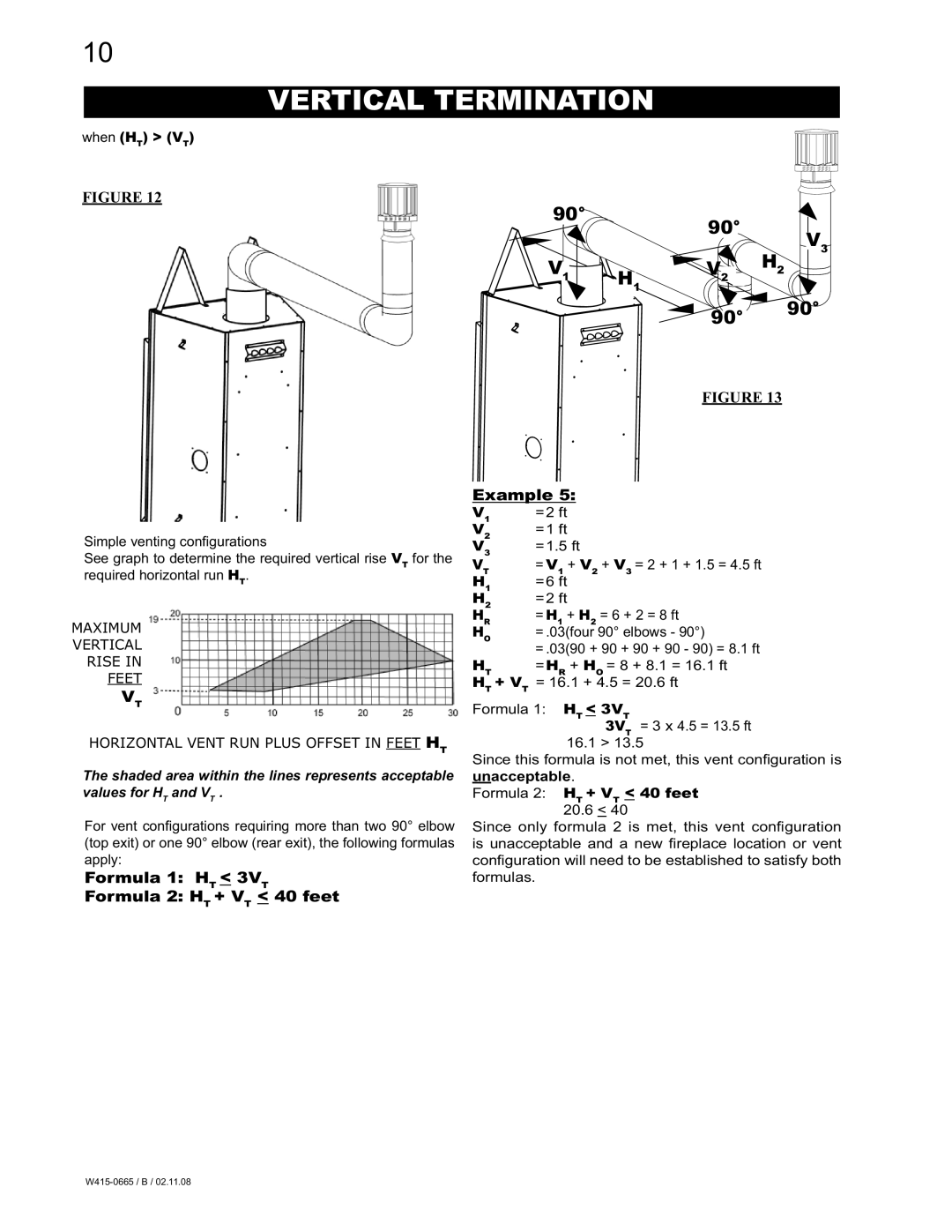
10
VERTICAL TERMINATION
when (HT) > (VT)
FIGURE 12
90° | 90° | V3 | |
| |||
V | V H2 | ||
| |||
1 | H1 |
| |
2 |
| ||
| 90° | 90° | |
|
|
Simple venting confi gurations
See graph to determine the required vertical rise VT for the required horizontal run HT.
MAXIMUM
VERTICAL
RISE IN
FEET
VT
HORIZONTAL VENT RUN PLUS OFFSET IN FEET HT
The shaded area within the lines represents acceptable values for HT and VT .
For vent confi gurations requiring more than two 90° elbow (top exit) or one 90° elbow (rear exit), the following formulas apply:
Formula 1: HT < 3VT
Formula 2: HT + VT < 40 feet
FIGURE 13
Example 5:
V1 | =2 ft |
V2 | =1 ft |
V3 | =1.5 ft |
VT | = V1 + V2 + V3 = 2 + 1 + 1.5 = 4.5 ft |
H1 | =6 ft |
H2 | =2 ft |
HR | = H1 + H2 = 6 + 2 = 8 ft |
HO | = .03(four 90° elbows - 90°) |
| = .03(90 + 90 + 90 + 90 - 90) = 8.1 ft |
HT | =HR + HO = 8 + 8.1 = 16.1 ft |
HT + VT | = 16.1 + 4.5 = 20.6 ft |
Formula 1: HT < 3VT
3VT = 3 x 4.5 = 13.5 ft
16.1 > 13.5
Since this formula is not met, this vent configuration is unacceptable.
Formula 2: HT + VT < 40 feet 20.6 < 40
Since only formula 2 is met, this vent confi guration is unacceptable and a new fi replace location or vent confi guration will need to be established to satisfy both formulas.
